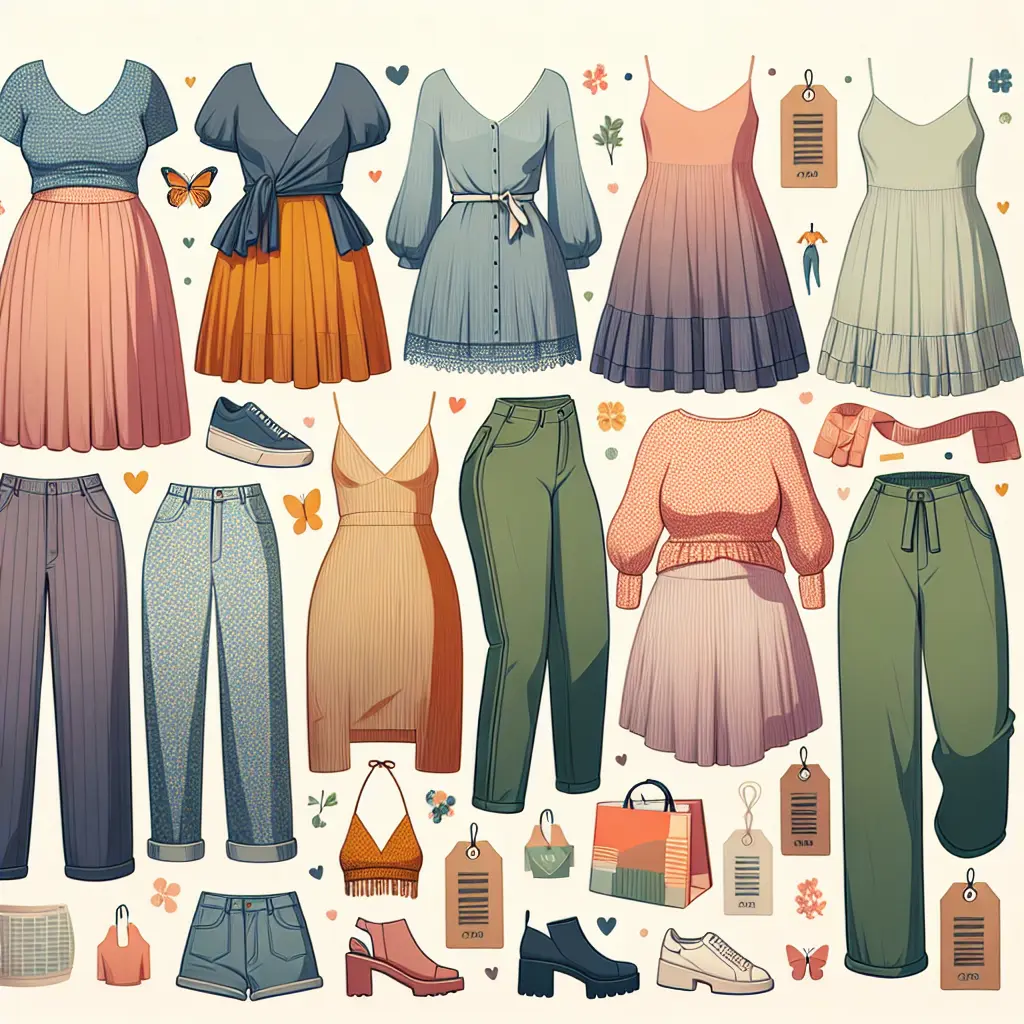
The Rise of Sustainable Plus Size Fashion
In recent years, the fashion industry has embraced a transformative wave of inclusivity and environmental consciousness, with sustainable plus size fashion standing at the forefront. This sector champions eco-friendly plus size clothing that doesn't compromise on style or ethics, heralding a revolution for curvy women that celebrates body diversity while prioritizing the planet's health. As we delve deeper into this realm, it becomes clear that this movement is not just a trend but a paradigm shift in consumer expectations and industry standards.
Driving Change: The Role of Eco-Conscious Plus Size Brands
The demand for ethical plus size brands is soaring as consumers increasingly prioritize values and lifestyles aligned with environmental sustainability. This burgeoning market is propelled by innovative designers and brands committed to crafting plus size sustainable fashion. They focus on materials and practices that minimize environmental impact, thereby fostering green plus size fashion that resonates with eco-conscious shoppers. These trailblazers are redefining style for curvy women while establishing standards for environmentally friendly plus size clothing worldwide.
Eco-conscious plus size brands understand that ethical fashion for plus sizes should not be an afterthought. These brands have embraced the challenge of ensuring that plus size eco-friendly brands are accessible and diverse. By offering sustainable plus size apparel, they promise durability and style wrapped in ethical production practices that reflect a commitment to Earth.
Leading Brands Pioneering Sustainable Plus Size Fashion
Girlfriend Collective
Girlfriend Collective is a renowned brand in the realm of sustainable curvy fashion. Known for their transparency and commitment to sustainability, they utilize recycled materials such as old fishing nets and water bottles to create their eco-friendly curvy fashion lines. Their dedication to ethical production is evident in their certification by Bluesign®, which ensures environmental and social responsibility throughout their supply chain. Learn more about Girlfriend Collective.
Universal Standard
Universal Standard has become synonymous with inclusivity and sustainability. Offering sizes from 00 to 40, they are committed to reducing waste through their innovative "Fit Liberty" program, allowing customers to exchange clothing for different sizes at no additional cost. This initiative not only supports body positivity but also encourages sustainable fashion for curvy women by reducing wasteful consumption. Discover Universal Standard.
Mara Hoffman
Mara Hoffman is a leader among ethical plus size designers who prioritize sustainable materials and practices. The brand emphasizes organic cotton, recycled nylon, and responsible wool in their collections. Their commitment extends beyond materials to include fair labor practices, making them a noteworthy example of environmentally friendly plus size clothing that doesn’t sacrifice ethics for aesthetics. Explore Mara Hoffman.
Innovations in Materials and Production
Innovative materials play a crucial role in the advancement of plus size sustainable fashion. Brands are exploring plant-based dyes, biodegradable fabrics, and low-impact production techniques to create eco-friendly plus size clothing. For instance, Tencel™, derived from sustainably sourced wood pulp, is becoming increasingly popular due to its softness, durability, and low environmental footprint.
Case Study: Eileen Fisher's Circular Model
Eileen Fisher has pioneered a circular economy model within the fashion industry. Their "Renew" program collects gently worn garments from customers, refurbishes them, and resells them at a lower price point. This initiative not only reduces textile waste but also encourages conscious plus size shopping by offering quality products at various price points. Read more about Eileen Fisher's initiatives.
Consumer Trends and the Impact on Plus Size Fashion
As consumers become more environmentally aware, there is a significant shift towards ethical consumption. According to a 2023 report by McKinsey & Company, 67% of consumers consider sustainability when making purchases, which reflects the growing importance of eco-friendly curvy fashion in purchasing decisions.
The Future of Sustainable Plus Size Fashion
The future of sustainable plus size fashion lies in innovation and collaboration. Brands are investing in research to develop cutting-edge materials and technologies that further reduce environmental impact. Moreover, collaborations between brands and sustainability experts are enhancing transparency and accountability within the industry.
Engaging with Consumers Through Storytelling
Brands are increasingly using storytelling to connect with consumers on an emotional level. By sharing the journey behind their products—from sourcing materials to production processes—brands like Reformation and Everlane are fostering trust and loyalty among eco-conscious shoppers.
Conclusion: Embracing a Sustainable and Inclusive Fashion Future
In the evolving world of fashion, sustainable plus size fashion is not just a fleeting trend; it's a powerful movement reshaping industry norms and consumer expectations. The rise of eco-friendly plus size brands like Girlfriend Collective, Universal Standard, and Mara Hoffman underscores a commitment to ethical practices and inclusivity, proving that style, sustainability, and diversity can coexist harmoniously.
As consumers, we play a pivotal role in this transformation. The growing preference for sustainable products emphasizes our collective power to influence market trends. By choosing brands that align with our values, we not only support the environment but also champion inclusivity and ethical production.
Now is the time to take action and be part of this fashion revolution. By exploring and supporting sustainable plus size fashion brands, you contribute to a future where fashion celebrates all bodies while protecting our planet. We invite you to share your experiences and insights on this journey. How have these changes impacted your shopping habits or personal style? Your thoughts can inspire others to make informed choices that resonate with both their personal values and our shared responsibility to care for our world.
Together, let's champion a fashion industry that reflects our dedication to sustainability and inclusivity. Explore further resources like Vogue's Sustainability Section or The Good Trade's Ethical Fashion Guide for more inspiration.
Author: Rachel Adams